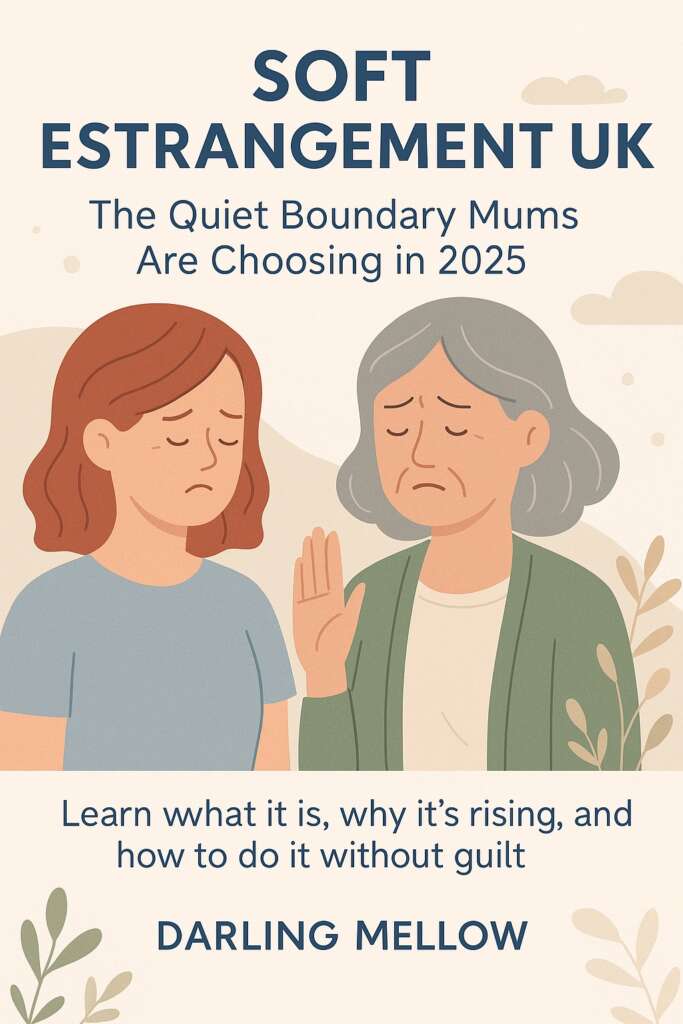What Soft Estrangement Looks Like
- Letting calls go to voicemail and replying later – or not at all
- Skipping events where you know you’ll leave feeling drained
- Switching from “pop in anytime” to “let’s plan a date”
- Keeping conversations light, steering clear of old triggers
Why Mums Are Choosing Distance
Studies show that negative or critical relationships directly impact maternal stress levels – even more than work or financial strain. One 2024 survey found 64% of mothers had reduced contact with at least one family member in the past year to protect their mental health.
For many, soft estrangement isn’t about punishment. It’s about energy preservation. When you’re already carrying the mental load of parenting, the wrong relationship can tip you into anxiety, irritability, or burnout.
How It’s Different from Going No-Contact
No-contact can feel like a door slamming shut. Soft estrangement is more like slowly closing a window. You may still share Christmas, birthdays, or quick check-ins – but the intimacy and day-to-day involvement are gone. This approach can be easier to manage emotionally, especially when children are involved.
Signs Soft Estrangement Might Be Right for You
- You dread seeing certain people, even though you “should” be close
- Your parenting choices are constantly criticised or undermined
- Time spent together always ends in emotional recovery mode
How to Create Healthy Space Without Guilt
- Start with boundaries you can hold – fewer calls, limited topics, shorter visits
- Keep explanations simple – “We’re focusing on home time right now” works better than over-defending
- Remind yourself you’re modelling self-respect for your children
The Mental Health Pay-Off
Psychologists note that strategic distancing can reduce stress, improve mood, and even strengthen relationships in the long term. When you choose peace over proximity, you often show up with more patience and authenticity – even in limited doses.
Gentle Reminders if You’re Struggling with Guilt
- Choosing distance is not the same as choosing conflict
- You can love someone and still need less of them
- Your children benefit from seeing you set healthy emotional boundaries
The Quiet Takeaway
Soft estrangement isn’t about cutting people out. It’s about cutting back on what costs you too much. In motherhood, where your reserves are already stretched thin, this quiet act of self-protection might be the most loving thing you can do – for them, and for you.
Need Gentle Support While You Create Space?
Join The Snug newsletter for quiet strategies, emotional tools, and kind words for the hard boundaries.


